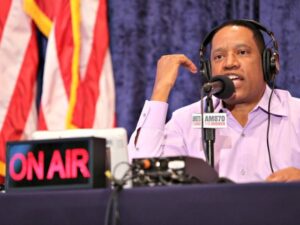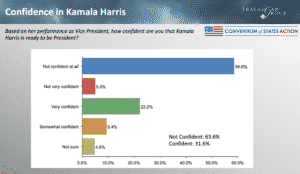SACRAMENTO, CA – In a ruling from the Court of Appeal of the State of California, 3rd Appellate District, the court ruled that an anti-misgendering law that criminalized employees of senior care facilities not using the preferred pronouns or names of patients was found unconstitutional.
“California Appeals Court Overturns Anti-Misgendering Law on First Amendment Grounds” https://t.co/FASUJJuwvN
— Mark Hemingway (@Heminator) July 19, 2021
On July 16th, the California 3rd Appellate District ruled that a portion of California’s HSC § 1439.51 was a violation of the First Amendment, specifically section HSC § 1439.51 (a)(5), which outlawed “a long-term care facility or facility staff” from using a resident’s preferred name or pronouns:
“[I]t shall be unlawful for a long-term care facility or facility staff to… Willfully and repeatedly fail to use a resident’s preferred name or pronouns after being clearly informed of the preferred name or pronouns.”
The case, brought forth by a group called “Taking Offense” and originally filed by Llewellyn Law Office’ Attorney David Llewellyn, has been going through the courts since 2017 and has faced an uphill battle.
When the law came into existence in 2017, it was found to be highly controversial by free speech advocates, since offenders could face jail time and fines in the thousands for misgendering a nursing home resident.
California court strikes down law against “misgendering” speechhttps://t.co/Ww8MGYcFBU pic.twitter.com/m4ljnaxqCB
— Jazz Shaw (@JazzShaw) July 19, 2021
But when the 3rd Appellate District heard the arguments, the court determined that the case brought by “Taking Offense” was compelling with regard to the section of HSC § 1439.51 that criminalized speech that could at best be construed as offensive.
Numerous cases regarding free speech and freedom of expression were referenced in the decision, such as Miami Herald Pub. Co., Div. of Knight Newspapers, Inc. v. Tornillo, which specifically addressed the fact that someone doesn’t have to say someone’s preferred pronoun or preferred name simply because the bearer of said name/pronoun requested it:
“The government is also limited in its ability to compel a speaker to accommodate another speaker’s message.”
Citing Brandenburg v. Ohio, the court also found that:
“Generally, the free speech clause protects a wide variety of speech a listener may find offensive, including insulting speech based on race, national origin, or religious beliefs.”
Other landmark cases such as Cohen v. California were noted in the court’s decision, writing:
“Our Supreme Court has observed, “[s]urely the State has no right to cleanse public debate to the point where it is grammatically palatable to the most squeamish among us.’”
One of the main issues this law faced when being previously challenged was that the California Attorney General argued that “the pronoun provision is content neutral” within the state law, and that it doesn’t specifically dictate speech as elderly care facility “employees remain free to avoid using the pronouns at issue entirely.”
While the courts agreed that the California law didn’t compel a particular set of speech, the court did find that the government was instead forcing employees to voice the preferred speech of another person despite a contradictory set of beliefs or speech they’d prefer using:
“[T]he issue is not whether the government is expressly telling employees what they must say, but rather that the government is compelling employees to give voice to the resident’s preferred pronoun where that pronoun expressly contradicts the message the employee would prefer to voice.”
Another issue addressed in the court’s decision was that a staff member could face criminal prosecution by failing to use the preferred pronoun of a resident that was neither harmed in any manner of care or was within earshot of the “misgendering”:
“There is no requirement in the statute that the misgendering at issue here negatively affect any resident’s access to care or course of treatment. Indeed, there is no requirement that the resident even be aware of the misgendering.”
While the decision noted that using a resident’s non-preferred pronouns could be construed as “simply rude, insulting, and cruel”, the state law aiming to “eliminate misuse of pronouns that just went too far”.
In other unique cases regarding free speech laws, we at Law Enforcement Today recently reported on a woman in New Jersey facing fines for anti-Biden flags containing offensive language.
Here’s that previous report.
_
ROSELLE PARK, NJ – A Municipal Court judge in New Jersey has ordered a property owner to remove flags from their property that contained profanity or face daily fines of $250, proclaiming that the First Amendment does not protect speech containing vulgarities.
Judge orders woman to remove ‘F*** Biden’ flags or face daily $250 fines: ‘We’re going into censorship’ https://t.co/QrzXrelZf9
— TheBlaze (@theblaze) July 18, 2021
A woman in Roselle Park, New Jersey, identified as Andrea Dick, managed to attract the ire of some locals and even Democratic Mayor Joseph Signorello over a handful of flags hanging on a fence at her property that contain profanities that denigrate President Joe Biden.
The flags in question contain the following words/imagery:
- “Don’t Blame Me I Voted For Trump”
- “Joe Biden Sucks”
- “Fuck Biden”
- “Fuck Biden Not My President”
- “Socialism Sucks Biden Blows”
- One flag depicts former President Trump extending two middle fingers and is captioned with “Fuck Biden”
Mayor Signorello claims that the flags violate the town ordinance that prohibits “obscene materials” due to the profanities and vulgar imagery present on the flags.
According to the municipal code regarding what defines “obscene materials”, the following is written:
“The word ‘obscene’ shall mean any material, communication or performance which the average person applying contemporary community standards existing within the municipality, would find, when considered as a whole:
- Appeals to the prurient interest;
- Depicts or describes in a patently offensive way sexual conduct as hereinafter specifically defined, or depicts or exhibits offensive nakedness as hereinafter specifically defined; and
- Lacks serious literary, artistic, political or scientific value.”
For clarification purposes, the definition of prurient is “marked by, arousing, or appealing to sexual desire”, and section “b” of the municipal code outlines descriptions or images of “sexual conduct” and/or “offensive nakedness”.
In short, the “obscene materials” municipal code strictly relates to pornographic imagery or graphic descriptions and must appeal “to the prurient interest” – meaning it would have to essentially pose the likelihood of getting someone sexually aroused when coming across it.
Yet, Mayor Signorello told local news outlet NJ.com that action needed to be taken because parents complained about their kids seeing the vulgar language on display:
“It’s been brought to our attention less because of the political aspect of it, but the vulgarity of it. The real problem is, from a neighbor perspective, is it’s a block away from an elementary school. It’s in a high visibility area for children. Most of the ire was drawn from a lot of local parents.”
Back in June, when Dick started getting harassed by the city to remove the flags or face potential fines, she stood her ground and proclaimed that she had every right to hang her flags on the property.
On July 15th, Roselle Park Municipal Court Judge Gary Bundy ordered Dick, as well as her mother Patricia Dilascio who is the listed property owner, to have the flags removed or else face fines of $250 a day.
In Judge Bundy’s decision on the case, he ruled that the First Amendment doesn’t protect the display of expletives:
“This is not a case about politics. It is a case, pure and simple, about language. This ordinance does not restrict political speech. Neither this town or its laws may abridge or eliminate Ms. Dilascio’s freedom of speech.”
“However, freedom of speech is not simply an absolute right. It is clear from state law and statutes that we cannot simply put up the umbrella of the First Amendment and say everything and anything is protected speech.”
Michael Campagna, who is representing the family, claimed that ordering Dick to remove the flags is tantamount to “censorship”:
“I am a firm believer in the First Amendment. I may not believe in what you’re saying, but I absolutely believe that you have the right to say it. That’s what our democracy is about. If you tell people that they cannot say something, that they cannot print something, that they cannot put a sign up, we’re going into censorship.”
What is interesting in the case is that Judge Bundy’s decision flies in the face of the Supreme Court’s 1971 ruling in Cohen v. California, where the Supreme Court found that a man wearing a jacket saying “Fuck the Draft” inside of a courthouse could not be convicted under a local disturbing the peace law.
In that 1971 case, Justice John Marshall Harlan II wrote:
“[W]hile the particular four-letter word being litigated here is perhaps more distasteful than most others of its genre, it is nevertheless often true that one man’s vulgarity is another’s lyric.”
Justice Harlan reasoned that “governments might soon seize upon the censorship of particular words as a convenient guise for banning the expression of unpopular views” and determined that a profane word, even on a jacket, cannot be banned under the First Amendment.
_
Want to make sure you never miss a story from Law Enforcement Today? With so much “stuff” happening in the world on social media, it’s easy for things to get lost.







